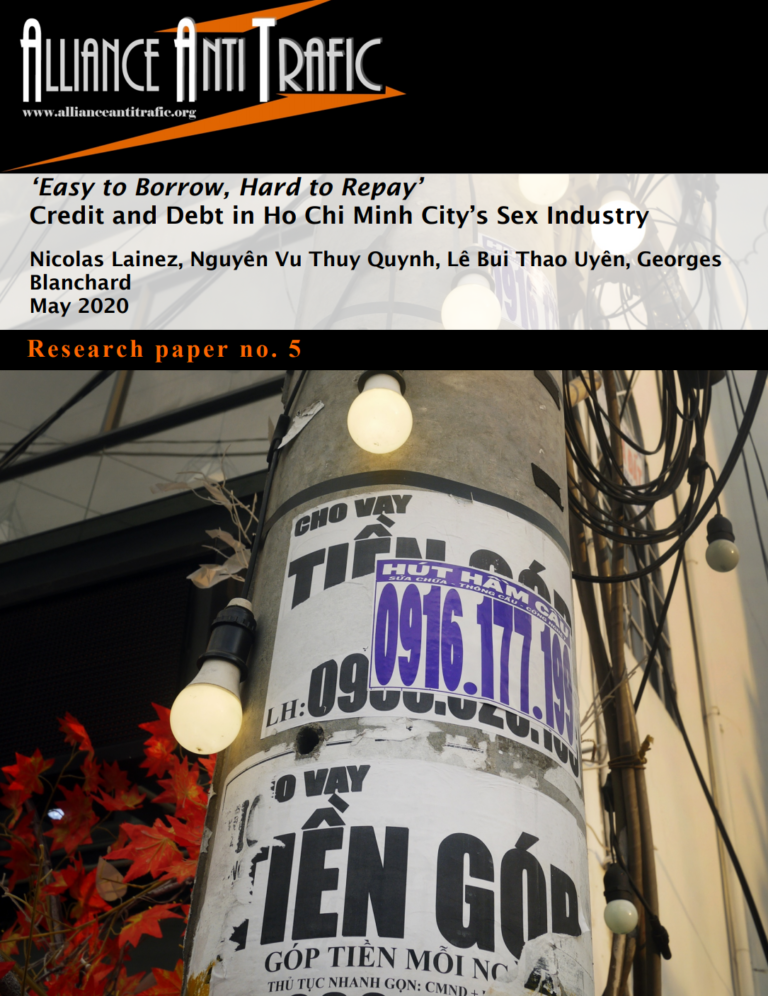This study examines the inner workings of credit and debt in the sex industry in Ho Chi Minh City, the megalopolis of Southern Vietnam. It argues that credit is widely available to financially excluded sex workers, but that this availability comes with tight constraints. As one sex worker put it bluntly, ‘it is easy to borrow, but it is hard to repay.’ This tension summarizes the financial lives of indoor and outdoor sex workers who borrow money from the informal credit market to fund consumption and make ends meet.
This study is timely for several reasons. First, it provides a valuable contribution to research on sex workers’ indebtedness, a topic that has yet to be addressed in Vietnam or elsewhere. It also sheds light on money lending in urban Vietnam, an area that also remains understudied. Second, debt in the sex trade is shrouded by speculation about coercion, violence and bondage.
The insights from this study do not challenge widespread assumptions about debt as an extractive and coercive device. However, instead of blaming ‘evil’ pimps and moneylenders for using debt as a tool of control, they locate moneylending in the social, economic and political context of post-reform Vietnam.
Third, credit is a hot issue in present-day Vietnam, a country where per capita debt had surged tenfold from USD126 to USD1,296 and household debt 50-fold from USD1.76 to USD91 billion between 2000 and 2016, marking an average annual growth rate of 28.6 percent. This rapid rise of household debt deserves further consideration from the perspective of urban precarious laborers including sex workers operating in the shadows of the market economy in Vietnam.

